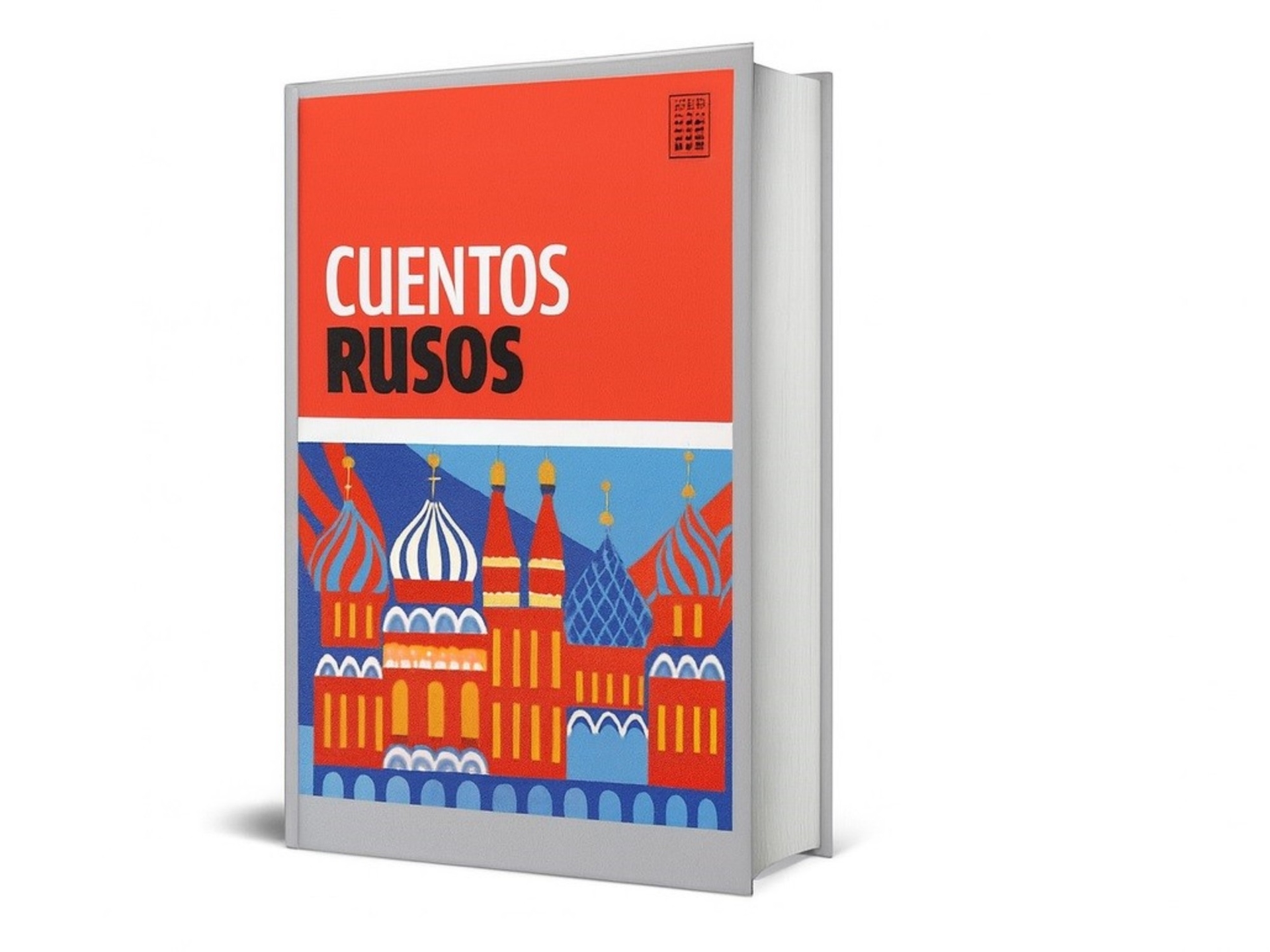Tolstoy, Dostoevsky, and Forgotten Voices: A Selection of Essential Russian Stories

There was a time—not so long ago—when every personal library boasted some collection of classics, anthologies, and short story selections like those published by Boris Spivacow's iconic Latin American Publishing Center since the late 1960s.
You didn't have to be a literary scholar, an intellectual, or even a university graduate to cultivate and organize these readings: they were part of the general culture of our broad middle classes , or, if you will, a thread of the conversation of the time. In the digital age, the world of literary anthologies often gave rise to editions with limited curation, which are resolved with materials and translations in circulation.
Along with these various precursors, the appearance in shop windows of the colorful books from the Palabras Mayores collection, published by Factotum Ediciones, has attracted attention for a couple of years. This is a series of anthologies of short stories and tales that approach the short literary format from different traditions— Japanese, Brazilian, Latin American, medieval and Renaissance —genres—fantasy, horror, detective stories—or themes—marine, perverse, Andean—among other offerings, with good design and meticulous editing.
According to Fátima Nieves García, the series coordinator, although initially, based on her experience as booksellers, they thought of books for an older audience , “with extra-comfortable typography,” they soon noticed that young people also greatly appreciated this detail : “Kids, in elementary school and in the first years of secondary school, don't like to be given small fonts... or texts that are too long.” She also clarifies that the translations, when available, are all original, another highly valued piece of editorial care.
This year, an anthology of Russian Stories was added to the collection , with a prologue and translation by Alejandro Ariel González . The book brings together a collection of short stories that seek to offer a possible journey—no less brilliant for their small size—through that great literary tradition. In addition to 19th-century classics, from Tolstoy to Dostoevsky and Andreyev , the series seeks to highlight figures perhaps lesser-known in the Spanish-speaking world.
“In addition to the essential authors, I wanted to expand the criteria a little further and incorporate unpublished stories, or those that have circulated very little, such as 'Nikita,' the included story by Andrei Platonov, or Aleksander Bogdanov,” González explains.
At the publisher's request , the names of Marina Tsvetaeva and Nadezhda Teffi were also added . "The 20th century saw an explosion of women in Russian literature, some of whom became great voices."
González points out that, like the Latin American intelligentsia of the 20th century, Russian literature also had to position itself in a non-central position in world culture . Thus, the dizzying and drastic changes that Russia experienced between the mid-19th and mid-20th centuries "were a trigger for a creative ferment," which was barely able to keep up with historical, social, and political events.
One might think that a short anthology of such a literary tradition would almost always be a reductionist exercise. The type of truncated text chosen for this selection seems appropriate. On the one hand, one thread focuses on childhood experiences, in tension with social inequalities, the problem of the gaze, and the treatment of religiosity from a child's perspective.
In “The Child at Christ's Nativity” (F. Dostoevsky ) and “The Little Angel” ( Andreiev ), unjust and precarious childhoods, in a world of absent parents or those subjected to poverty, which accompanies the decline of religious discourse, are still deeply moving.
 Fyodor Dostoevsky. Clarín Archive.
Fyodor Dostoevsky. Clarín Archive.Or Nikita, a imaginative five-year-old boy, has to take care of the humble rural dwelling (isba) where he's left alone while his mother works, when his father leaves for war. His mischief and way of survival will largely reside in his imagination: "I believed that there, at the bottom [of the well], lived little water men. I knew what they looked like; I saw them in my dreams, and when I woke up, I wanted to catch them, but they escaped from him through the grass, heading for the well, back to their home."
The other theme that runs through the anthology could be that of death, a universal theme, explored from Toltstoy 's classic "Three Deaths"—with three supposedly disparate, but equally sad and absurd deaths—to Bogdanov 's Promethean and dystopian approach in "The Feast of Immortality." During the celebrations of the thousandth anniversary of the discovery of eternal youth, we witnessed the crisis of the inventor himself, Fride, who "did not foster for his grandchildren and children any of those parental feelings inherent in men of the past."
The women in the anthology, for their part, add humor and experimentation to sophisticated prose.
 Leo Tolstoy. Clarín Archive.
Leo Tolstoy. Clarín Archive.Could you think of something that characterizes, or is a figure or peculiarity of, the Russian literary tradition? For González, there is one specificity in Russia: it is the place occupied by the writer who, unlike Western writers, until well into the 20th century, had an ethical commitment to their work before any aesthetic commitment .
“The writer was seen as a sort of prophet, a teacher, someone with something more to say and position himself before society; he is not just a writer of fiction and nothing more. Perhaps this is why the writer's voice is so important, and why in Russia, oversight bodies and secret services have always been very attentive to literary production, and why so many Russian writers have been murdered, censored, and exiled, because a value is placed on the word, a different accent than that already given in the West at the same time.” A theme that has spanned eras, weathered revolutions, conjured lives, and continues to the present.
Russian Tales , translated by Alejandro Ariel González (Factotum).
Clarin

